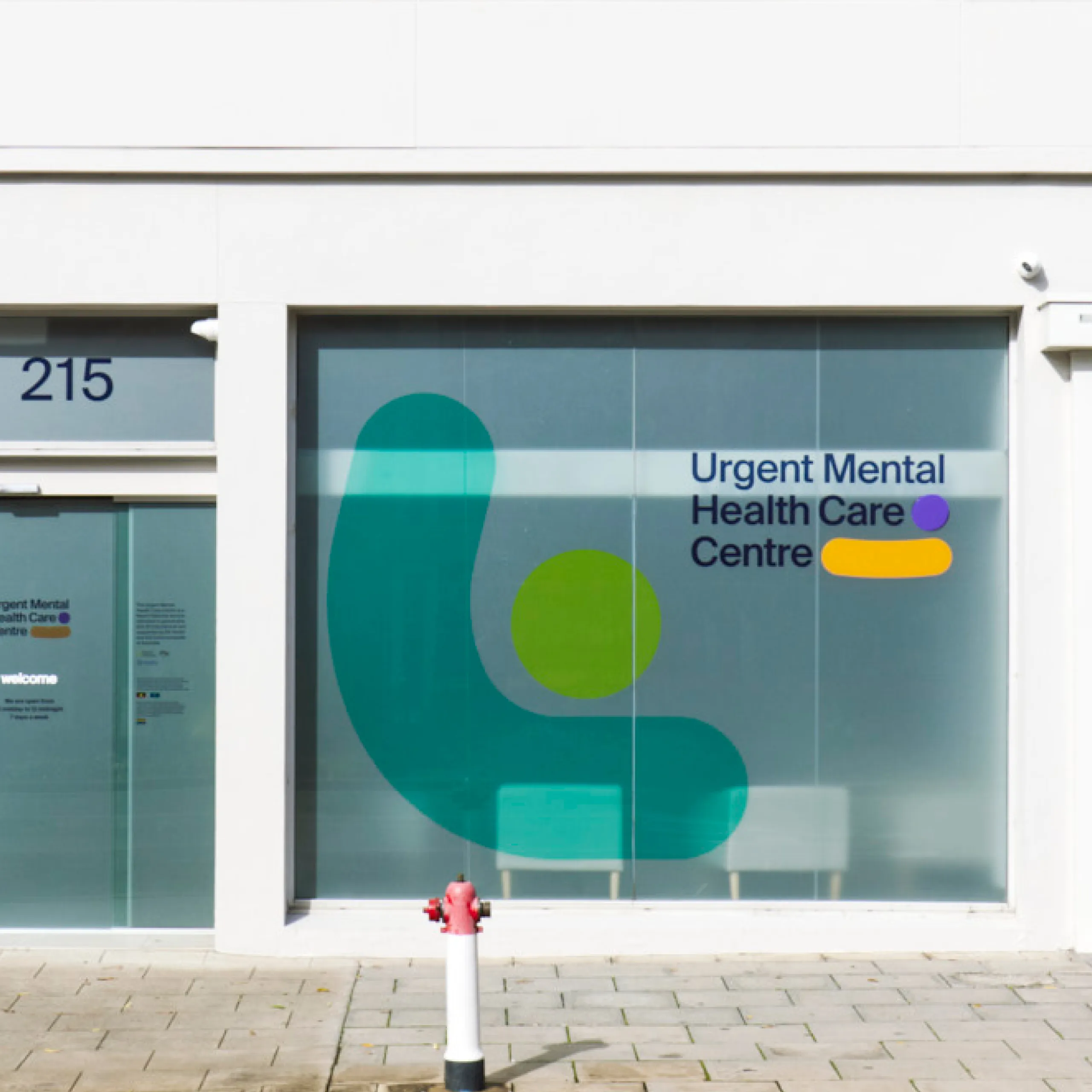The Urgent Mental Health Needs Of Young People In Canada: A Global Commission's Lessons

Table of Contents
The Scope of the Problem: Understanding the Crisis in Canada
Rising Rates of Mental Health Issues
Statistics from reputable sources like Statistics Canada paint a concerning picture. The prevalence of mental health issues among Canadian youth is alarmingly high, significantly impacting their lives and futures.
- Anxiety disorders: A substantial percentage of Canadian youth experience debilitating anxiety, affecting their ability to concentrate, socialize, and perform well academically.
- Depression: Depression rates among young people are on the rise, leading to decreased motivation, feelings of hopelessness, and in severe cases, suicidal ideation.
- Self-harm: Self-harm behaviors, such as cutting or burning, are increasingly common among youth struggling with emotional distress.
- Suicide attempts: Suicide attempts represent a tragic consequence of untreated mental health issues among young Canadians, highlighting the urgency of addressing this crisis.
The impact extends beyond emotional distress. Poor mental health significantly affects academic performance, leading to lower grades, increased absenteeism, and even dropping out of school. Social interactions are also negatively impacted, resulting in isolation, strained relationships, and difficulties forming healthy connections. These challenges can have lasting consequences, hindering future academic and career prospects and overall well-being.
Identifying Vulnerable Groups
Certain groups of Canadian youth face disproportionately higher risks of mental health challenges. Systemic inequities and societal marginalization significantly contribute to these disparities.
- Indigenous youth: Indigenous youth experience significantly higher rates of mental health issues due to historical trauma, systemic discrimination, and limited access to culturally appropriate care.
- LGBTQ2S+ youth: LGBTQ2S+ youth face unique challenges, including stigma, discrimination, and lack of inclusive support systems, leading to increased vulnerability to mental health problems.
- Youth from low-income families: Socioeconomic factors like poverty, food insecurity, and unstable housing contribute to increased stress and mental health risks among young people from low-income backgrounds.
Providing culturally sensitive and inclusive mental health services is crucial for addressing the specific needs of these vulnerable populations. These services must acknowledge and address the unique challenges faced by each group while promoting equity and access to care.
Lessons from the Global Commission on Youth Mental Health
The global commission on youth mental health offered several key recommendations applicable to Canada's situation.
Early Intervention and Prevention
The commission stressed the paramount importance of early identification and prevention strategies. Early intervention is key to preventing mental health issues from escalating into more severe problems.
- School-based programs: Implementing comprehensive mental health programs in schools can help identify at-risk youth early and provide timely support.
- Family support: Equipping families with the knowledge and resources to support their children's mental health is crucial.
- Community initiatives: Community-based programs can offer accessible and culturally relevant mental health services to young people.
Early detection and proactive interventions are far more effective and cost-efficient than addressing severe mental health crises later on.
Strengthening Mental Health Services
The commission highlighted the urgent need for improved access to high-quality, youth-friendly mental health services.
- Increased funding: Substantial increases in government funding are essential to expand services and reduce wait times.
- Improved training: Training mental health professionals in youth-specific issues and trauma-informed care is critical.
- Expansion of services: Expanding the availability of various therapeutic approaches and support services is necessary to meet the diverse needs of young people.
Integrated care models, combining physical and mental health services, should be prioritized to address the interconnectedness of physical and mental well-being.
Addressing Systemic Inequalities
The commission strongly emphasized addressing systemic barriers faced by marginalized groups in accessing mental health care.
- Culturally safe spaces: Creating culturally safe and inclusive spaces where young people feel comfortable seeking help is paramount.
- Culturally competent professionals: Training mental health professionals to understand and respond to the cultural needs of diverse youth populations is essential.
- Equity of access: Ensuring equitable access to mental health services regardless of location, income, or background is vital.
Practical Solutions for Canada
Canada needs a multi-pronged approach to effectively address the mental health needs of its youth.
Increased Funding and Resources
Increased government funding is crucial to support all aspects of youth mental health.
- Investment in prevention programs: Funding preventative initiatives in schools and communities can reduce the incidence of mental health issues.
- Expansion of services: Increased funding allows for the expansion of existing services and the creation of new, specialized programs.
- Research and innovation: Investing in research is crucial for developing innovative approaches and improving treatment outcomes.
Improving Access to Services
Improving access requires innovative strategies to reach all youth.
- Tele-mental health services: Utilizing technology to provide remote mental health services can improve access for youth in rural and remote areas.
- Mobile clinics: Mobile clinics can bring services directly to communities with limited access.
- School-based programs: Integrating mental health services into schools ensures early intervention and accessibility.
Promoting Mental Health Literacy
Educating young people, parents, and educators about mental health is paramount.
- School curricula: Integrating mental health education into school curricula can help reduce stigma and promote help-seeking behavior.
- Community workshops: Community-based workshops can provide information and resources to parents and caregivers.
- Public awareness campaigns: Public awareness campaigns can help reduce stigma and raise awareness about available resources.
Conclusion
The mental health of young people in Canada is a pressing issue demanding urgent and comprehensive action. Lessons from the global commission highlight the urgent need for early intervention, improved access to quality services, and the critical importance of addressing systemic inequalities. By implementing the recommendations outlined above – increased funding, improved access, and promotion of mental health literacy – Canada can make significant strides in supporting the mental well-being of its youth. Let's work together to address the urgent mental health needs of young people in Canada and build a brighter future for the next generation. Take action today and learn more about resources available to support the mental health of young people in Canada in your community. #YouthMentalHealth #Canada #MentalHealthMatters

Featured Posts
-
 Analyzing The Trend Of Betting On The Los Angeles Wildfires
May 03, 2025
Analyzing The Trend Of Betting On The Los Angeles Wildfires
May 03, 2025 -
 Exclusive Reveal The Celebrity Craving Melissa Gorgas Beach Home
May 03, 2025
Exclusive Reveal The Celebrity Craving Melissa Gorgas Beach Home
May 03, 2025 -
 Limited Time Fortnite Cowboy Bebop Skins And Items Get Yours Now
May 03, 2025
Limited Time Fortnite Cowboy Bebop Skins And Items Get Yours Now
May 03, 2025 -
 The Chinese Automotive Market Challenges And Opportunities For Foreign Brands
May 03, 2025
The Chinese Automotive Market Challenges And Opportunities For Foreign Brands
May 03, 2025 -
 Five Threats To Reform Uks Political Future
May 03, 2025
Five Threats To Reform Uks Political Future
May 03, 2025
